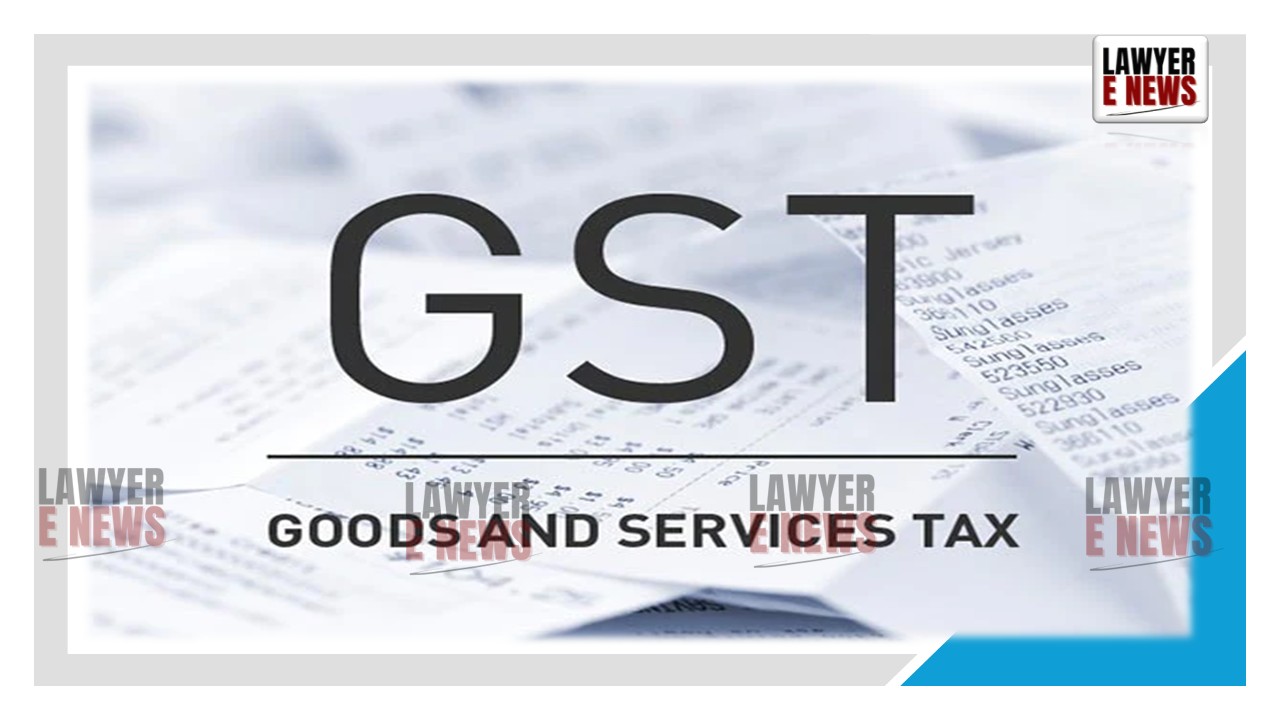-
by Admin
15 February 2026 5:35 AM



Kerala High Court set aside an assessment order issued under Section 73 of the Central Goods and Services Tax Act, 2017 (CGST Act), which disallowed Input Tax Credit (ITC) on works contract services availed by Lulu International Shopping Malls Pvt. Ltd. for constructing shopping malls. The court held that the assessment failed to consider the principles laid down by the Supreme Court in Chief Commissioner of Central Goods and Services Tax v. M/s Safari Retreats Private Ltd. (2024 INSC 756), which clarified the scope of "plant or machinery" under Section 17(5)(d) of the CGST Act.
The court directed the tax authority to reconsider the petitioner’s ITC eligibility based on the functionality test articulated in Safari Retreats and to provide a fresh hearing to the petitioner.
"Functionality Test Is Key to Determining ITC Eligibility for Buildings Used in Business"
Lulu International Shopping Malls Pvt. Ltd. constructed shopping malls and claimed ITC on works contract services for the tax period 2019-20. During an audit under Section 73 of the CGST Act, the State GST Department issued a show cause notice dated May 29, 2024, alleging that ITC on such services was inadmissible since the output supply was not works contract services.
Despite the petitioner’s detailed reply disputing the claims, the respondent confirmed the demand for ITC reversal through an order dated August 30, 2024 (Exhibit P3). The petitioner challenged the order before the Kerala High Court, citing inconsistency with the Safari Retreats ruling and procedural irregularities in interpreting the CGST Act's provisions.
The petitioner argued that the impugned order erroneously disallowed ITC on works contract services used for constructing malls, contrary to the Supreme Court's Safari Retreats judgment. The court observed that the Safari Retreats ruling clarified that buildings used in business activities such as leasing or renting could qualify as "plant or machinery" under Section 17(5)(d) of the CGST Act, provided the functionality test was satisfied.
"If the construction of a building is essential for carrying out the activity of supplying services or other transactions in respect of the building, then such a building could be held to be a plant," the court noted [Para 6].
The respondent contended that the Safari Retreats ruling could not retroactively apply to assessments concluded before the judgment. The court rejected this argument, holding that the judgment was declaratory in nature and applied to pending and concluded assessments alike.
"The impugned order failed to consider the declaratory nature of the Supreme Court’s ruling in Safari Retreats, which applies to all assessments where the issue is still open," the court stated [Para 7].
The petitioner highlighted inconsistencies in ITC reporting under Tables 4D(1) and 7E of the GSTR-3B and GSTR-9 forms, as well as non-compliance with Central Board of Indirect Taxes and Customs (CBIC) instructions. The court left these issues open for reconsideration, emphasizing the need for a de novo determination in accordance with the law.
While the respondent argued that the petitioner had an alternative appellate remedy, the court chose to exercise its writ jurisdiction under Article 226 of the Constitution. It reasoned that the impugned order was prima facie perverse, warranting judicial intervention.
"Though an appellate remedy is available, this court’s jurisdiction is justified in cases where the assessment order is patently perverse and contrary to settled law," the court held [Para 7].
"Buildings Used for Leasing or Renting May Qualify as 'Plant or Machinery' If Functionality Test Is Met"
The court emphasized that the Safari Retreats judgment established that determining whether a building qualifies as "plant or machinery" requires applying the functionality test. The test considers the role of the building in the taxpayer’s business operations.
"The impugned order is vitiated for not considering the Safari Retreats ruling, which requires a factual inquiry into whether the building satisfies the functionality test under Section 17(5)(d) of the CGST Act," the court observed [Para 8].
The court set aside the assessment order and directed the respondent to reconsider the petitioner’s ITC eligibility de novo, taking into account the Safari Retreats principles and all contentions raised by the petitioner.
"The respondent must determine afresh whether the petitioner’s shopping malls qualify as plant under Section 17(5)(d) of the CGST Act, applying the functionality test as per Safari Retreats," the court directed [Para 9].
Procedural Safeguards
The court also instructed the tax authority to ensure procedural compliance by granting the petitioner a proper hearing and considering all relevant facts and arguments.
"Sufficient opportunity of hearing shall be granted to the petitioner before passing final orders," the court stated [Para 9].
The writ petition (W.P.(C) No. 41483 of 2024) was allowed. The court set aside the impugned order (Exhibit P3) dated August 30, 2024, and directed the respondent to:
1. Conduct a de novo reconsideration of the petitioner’s ITC claims in light of the Safari Retreats judgment.
2. Consider all issues raised by the petitioner, including alleged inconsistencies in ITC reporting and CBIC instructions.
3. Complete the reassessment within three months, ensuring procedural compliance and providing the petitioner an opportunity for a fair hearing.
Date of Decision: January 21, 2025
